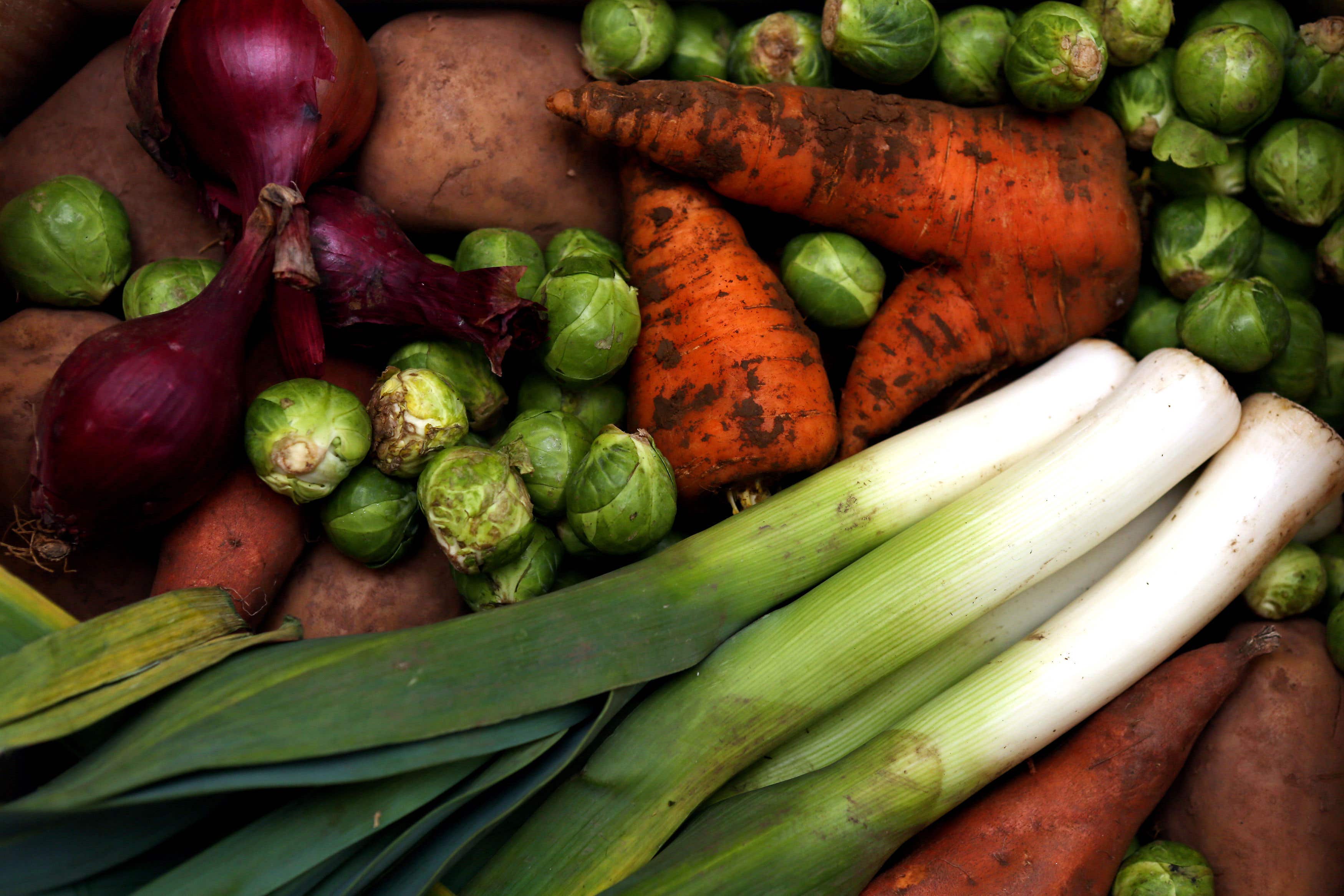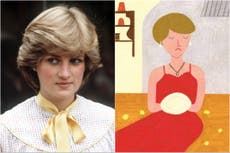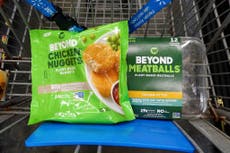Eating a raw vegan diet almost killed me
Such a restrictive diet helped to mask the harm I was doing to my body, writes Amelia Loulli. My ability to concentrate or engage with life became basically non-existent. I was sick. Very, very sick


I first stopped eating when I was 14 years old.
Buried beneath the stresses of looming GCSE examinations at a girls’ grammar school that didn’t believe in mental health, coupled with an unstable home life, I began a pattern that would come to take a hold on my life. This was a pattern of attempting to exert some control by monitoring what I did and didn’t eat – sometimes to dangerous extremes.
This wasn’t a conscious relationship, but it was a compelling one. Over the years I have suffered from various eating disorders including anorexia, bulimia and binge eating; my weight fluctuating wildly – along with my grip on myself and food.
Although eating disorders can affect anyone, regardless of age, gender or ethnicity, like most mental health issues they carry with them a stigma that discourages discussion – as well as an assumption that they mainly affect teenage girls.
There are, of course, worrying numbers of teenage girls affected by eating disorders, but at some point, teenage girls grow up. They become young women, mothers, middle-aged women – and with recovery so challenging and elusive, they are often still struggling, which is something we don’t talk about often.
Following the recent death of the raw food influencer Zhanna Samsonova, I’ve found myself reflecting a lot on my relationship with food, especially the year I spent as a raw vegan at the age of 24. Long after my decision to become a vegetarian as a young child who was extremely concerned for the fate of all lambs and piglets, my life later propelled me with some force, as a fairly clueless, desperate and frightened new mother, into the holistic, organic, attachment parenting lifestyle.
I got rid of the TV; home-schooled the kids; practised yoga; bought nothing processed or packaged in plastic; handmade all of our presents (quite badly); and generally made life a lot harder than it really needed to be. After a few years of living this way, raw veganism became a sort of obvious next step. It took hold of me – or, more accurately as I realise it now, I suffered an eating disorder relapse triggered by the raw veganism movement.
The raw food diet is exactly as it sounds: it involves eating only raw and uncooked vegetables, fruits, nuts and seeds. It is unprocessed food to the extreme. My kitchen was stocked with the tools of this particularly worrying trade, including a juicer, blender and dehydrator, giving the anti-cook the ability to concoct drinks, soups and even dried-out fruit leathers in order to stay satiated.
Of course, during that year I was never fully satiated. I was, in fact, hungry. Almost constantly. But as you shift the amount and types of food you are eating to that extent, the body learns to expect less, and you can do a very good job of convincing yourself that you are getting enough. Of course, the physical body will show the signs – energy levels will drop, and exhaustion is inevitable – but, for a while, as you exist on the fumes of your own disturbed reality, you can get by surprisingly well. That is, until you can’t.
It’s important to note that veganism itself is not an eating disorder. But it’s also important to realise that in order for the decision to eat a vegan diet to be a truly healthy one, it ought to be a decision rooted in compassion – compassion for our animal friends, and compassion for oneself, rather than one based on obsessive, restrictive control as a way of achieving weight loss or aesthetic goals.
Done right, veganism can be a choice rooted in abundance and health, but I fear this is often not the case. You only have to look up a few hashtags relating to raw food or veganism online to know that things are not OK. The messaging remains similar to the sort I received during my own problematic experiences of the vegan and raw food lifestyles, which proved to be an extremely potent combination for someone in recovery from eating disorders.
Content is overwhelmingly geared towards an aesthetic that platforms women who are extremely thin – bordering on emaciated – and who manage to exist both gratefully and gracefully on a diet of almost no food whatsoever.
Towards the end of my year of raw food, my physical health went into a sharp and serious decline. I was suffering from near-constant headaches; I was relentlessly tired; my skin became sallow; I experienced hair loss, dizziness, and got regularly injured whenever I attempted any kind of exercise.
My ability to concentrate or engage with life became basically non-existent. I was sick. Very, very sick. Everything I was experiencing physically and mentally was congruent with what I experienced as a teenager suffering from anorexia, but this time I had successfully repackaged my illness as a kind of conscious lifestyle.
I had fooled myself. After a few months of my periods stopping completely, I went to the doctor who diagnosed me with severe anaemia. I am grateful that at this point I realised it was time to get some proper psychiatric help and to truly face the slow and complex process of rehabilitation and recovery from disordered eating.
I am now 37 years old, and I still don’t consider myself “cured” – I expect my relationship with food will probably always be complex. But I did pass a significant turning point once I allowed myself to get interested in what my body is capable of rather than how small or thin or bendy it can look.
Can I climb the highest mountain in England? Can I run a marathon? Can I go wild swimming in January? Can I get strong enough to deadlift twice my body weight? I have started to approach my body as a way of completing fun and interesting challenges, meaning it becomes something I can take better care of and be more grateful for. Vitally, this way food becomes an issue of fuel, something I need plenty of in order to achieve my goals.
I also, crucially, try to stay far away from food and diet-related social media content. Really listening to the body in recovery means protecting it from the loud, echoey voices of influencers who might themselves be in the throes of serious illness packaged as an enviable lifestyle choice.
For anyone struggling with the issues raised in this article, eating disorder charity Beat’s helpline is available 365 days a year on 0808 801 0677. NCFED offers information, resources and counselling for those suffering from eating disorders, as well as their support networks. Visit eating-disorders.org.uk or call 0845 838 2040
Join our commenting forum
Join thought-provoking conversations, follow other Independent readers and see their replies
Comments


Bookmark popover
Removed from bookmarks